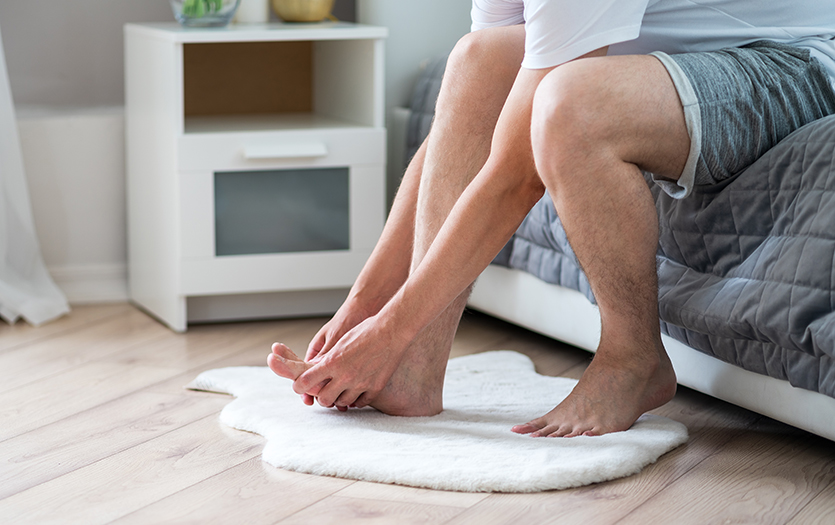
Your body runs on a precise timing system that helps regulate when you sleep, wake and feel alert. Keep reading to understand how this clock ticks, what affects it and how to adjust it.
What is the body clock (circadian rhythms)?
The word circadian is derived from the Latin word(s) circa diem, meaning "about a day." It refers to the body's biological clock, which regulates in nearly 24-hour cycles that control functions such as sleeping and waking, temperature, the immune system, energy levels and even mood. Individual circadian rhythms are influenced by both internal factors, such as genetics and hormones, and external factors, like light exposure.
Out of sync
Body clock sleep problems are often linked to disruptions in melatonin production, which helps you doze off and stay asleep. Light and dark affect how your body makes melatonin. Daylight suppresses the release of melatonin, while darkness triggers it. Individuals who work at night in artificial light may produce less melatonin than they need.
Other elements that impact your body clock and contribute to sleep issues include:
-
Traveling across time zones. Jet lag can lead to sleep issues because your body clock has not adapted to the new time zone. For example, if you fly from Chicago to Rome, which has a seven-hour time difference, when you land at 6:00 a.m., your body thinks it's 11:00 p.m. and wants to sleep, but in Rome, the day is just starting.
-
Changes to your sleep schedule. Working evenings or alternating between night and day shifts can make it harder for your body to reset its internal clock, leading to fatigue and poor sleep quality.
-
Sleep environment. Bright light, screen exposure or noise can trick your body into staying awake.
-
Illness. Medical conditions like dementia, head injuries, recovering from a coma and severe depression can alter sleep patterns. Additionally, some medications used to treat chronic health issues may affect the central nervous system, which can also impact sleep.
-
Drugs and alcohol. Some illicit or recreational substances can interfere with sleep cycles. Although you may fall asleep with no problems after having a few drinks in the evening, alcohol can be a nightmare for sleep quality and cause disruptions later in the night.
Genetic influences
While most people's circadian rhythms run close to 24 hours, it's not unusual for some individuals to naturally have slightly shorter or longer cycles. These genetic differences contribute to whether someone is inherently a morning or night person.
Night owls have a hard time falling asleep until very late at night or into the wee hours of the morning. Whereas early birds tend to fall asleep prematurely, around 8 p.m. or sooner, and wake up before dawn. Either of these sleep patterns may or may not cause problems depending on each person's lifestyle and schedule.
Winding up
If your natural sleep schedule does not align with your daily routine, there are ways to adjust it.
For night owls who want to get an earlier start to their day, consider the following:
-
Cleaning up your sleep hygiene. Examples of healthy habits include:
-
Waking up at the same time each day.
-
Avoiding alcohol, caffeine and tobacco products before bed.
-
Limiting daytime naps.
-
Reserving time spent in bed for sleep-related activities. Do not read, watch TV or use your phone in bed.
-
-
Try using light therapy. Light therapy means exposing yourself to bright light as soon as you wake up. You can use a bright (10,000 lux) light or a full-spectrum light box for 30 to 45 minutes each day. Ask your doctor for a specific schedule for when to use the light.
-
Try moving your bedtime slowly over time. Gradually move your bedtime earlier and earlier. Your body may get used to the change in schedule.
For early risers aiming to adapt to a later sleep schedule, start with:
-
Moving your bedtime slowly over time. Gradually move your bedtime later and later. Your body may get used to the change in schedule, and you may sleep later in the morning, too.
-
Using light therapy. In this case, light therapy means exposing yourself to bright light in the evening. Use a bright (10,000 lux) light box or a full-spectrum light box for 30 to 45 minutes each day.
If you’ve made changes and still struggle with maintaining a consistent routine, it may be worth consulting your primary care provider about a referral to PPG—Sleep Medicine for an in-lab or home sleep study.
Copyrighted material adapted with permission from Healthwise, Incorporated. This information does not replace the advice of a doctor.



